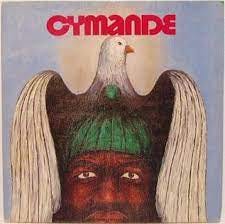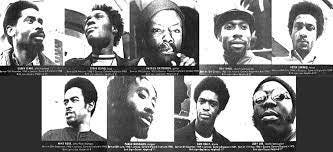It’s alright: The enduring truths of Cymande
A 1972 debut that envisioned a different strain of fusion
Your ears might not instantly be able to place “Bra,” which is track 7 on the rivetingly-right-for-these-times 1972 debut of the British funk collective Cymande.
But if you’ve been exposed to popular culture in the last 30 years or so, you’ve probably danced to or distantly absorbed its peppery, delicately chopped groove.
The track is featured in Spike Lee’s Crooklyn, and has been prominently sampled by Gang Starr and De La Soul (1989’s “Change in Speak” remains one of the craftiest interpolations from that heady era). Other songs on this consistently musical debut have been sampled by the Fugees, Wu-Tang Clan and EPMD.
“Bra” and “Dove” and the other singles from Cymande are what could be called “environmental” hits – works that have circulated and recycled over generations even though the record of origin remains underloved. (Except by DJs and collectors; a first pressing in good shape can go for over $100.)
When you listen to the record from top to bottom, that fate is flat-out mystifying. Cymande – named after a calypso word for dove, universal symbol of peace – borrowed the particle-collider ethos of early ‘70s jazz fusion but avoided that subgenre’s muscle-flexing indulgences. Drawing on ritual African rhythm, reggae, soul and funk, the large band developed a low-key rhythmic simmer (they called it “nyah-rock”) that reinforced the lyrical message, mostly upbeat calls for brotherhood and compassion. The band was based in London but the musicians came from all over, including Guyana, Jamaica and Saint Vincent.
Live and in the studio, these musicians played with great openness and patience; it’s possible to sense them listening to each other, aligning themselves according to the micro measure-by-measure considerations of rhythm as well as the ever-shifting imperatives of group interplay. They are also tuned to the loftier higher-consciousness frequencies: The band captured the spiritual idealism that was exploding in reggae at the time, and then, through the intentional diversity of its sound, furthered it. That alone gets them a place on the music “tree of life.”
I heard this record for the first time in decades in a record shop over the holidays. When the theme of “Zion I” locked in, it felt like one of those moments where the universe is beaming you a specially-selected sound, something that you needed at precisely this moment but didn’t know it yet.
It hit me as a pure transmission from Planet Uplift, an example of the kind of organic musical unity that has become somewhat exotic these days. And that’s even before we got to “Bra” with its resolute expression of faith in the future: But it’s all right – We can still go on.
Why yes, we have a fancy digital suggestion box. Share your favorite Underloved/Overlooked records here: echolocatormusic@gmail.com.
Please consider subscribing (it’s free!). And…..please spread the word! (This only works via word of mouth!)






